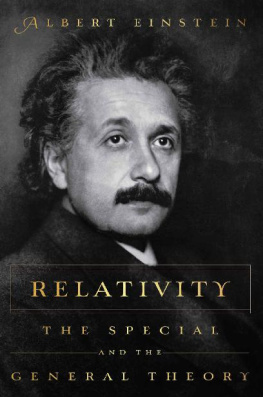Win Wenger - The Einstein Factor
Here you can read online Win Wenger - The Einstein Factor full text of the book (entire story) in english for free. Download pdf and epub, get meaning, cover and reviews about this ebook. year: 1995, genre: Religion. Description of the work, (preface) as well as reviews are available. Best literature library LitArk.com created for fans of good reading and offers a wide selection of genres:
Romance novel
Science fiction
Adventure
Detective
Science
History
Home and family
Prose
Art
Politics
Computer
Non-fiction
Religion
Business
Children
Humor
Choose a favorite category and find really read worthwhile books. Enjoy immersion in the world of imagination, feel the emotions of the characters or learn something new for yourself, make an fascinating discovery.

- Book:The Einstein Factor
- Author:
- Genre:
- Year:1995
- Rating:4 / 5
- Favourites:Add to favourites
- Your mark:
- 80
- 1
- 2
- 3
- 4
- 5
The Einstein Factor: summary, description and annotation
We offer to read an annotation, description, summary or preface (depends on what the author of the book "The Einstein Factor" wrote himself). If you haven't found the necessary information about the book — write in the comments, we will try to find it.
The Einstein Factor — read online for free the complete book (whole text) full work
Below is the text of the book, divided by pages. System saving the place of the last page read, allows you to conveniently read the book "The Einstein Factor" online for free, without having to search again every time where you left off. Put a bookmark, and you can go to the page where you finished reading at any time.
Font size:
Interval:
Bookmark:


Copyright 1996 by Win Wenger and Richard Poe
All rights reserved. No part of this book may be reproduced or transmitted in any form or by any means, electronic or mechanical, including photocopying, recording, or by any information storage or retrieval system, without written permission from Random House, Inc., except for the inclusion of brief quotations in a review.
Published by Three Rivers Press, New York, New York.
Member of the Crown Publishing Group, a division of Random House, Inc.
www.crownpublishing.com
THREE RIVERS PRESS and the Tugboat design are registered trademarks of Random House, Inc.
Originally published by Prima Publishing, Roseville, California, in 1995.
All figures by Russ Adams, including adaptations from other sources.
: From Flow: The Psychology of Optimal Experience by Mihaly Csikszentmihalyi. Copyright 1990 by Mihaly Csikszentmihalyi. Adapted by permission of HarperCollins Publishers, Inc.
: First appeared in Success, June 1991. Copyright 1991 by Success Partners. Reprinted by permission of Success magazine.
DISCLAIMER
Prima Publishing has designed this book to provide information in regard to the subject matter covered. The purpose of this book is to educate. It is sold with the understanding that the publisher and the author are not liable for the misconception or misuse of information provided. Every effort has been made to make this book as complete and as accurate as possible. Prima Publishing and the author shall have neither liability nor responsibility to any person or entity with respect to any loss, damage, or injury caused or alleged to be caused directly or indirectly by the information contained in this book.
Library of Congress Cataloging-in-Publication Data
Wenger, Win.
The Einstein factor : a proven new method for increasing your intelligence / Win Wenger and Richard Poe
p. cm.
Includes bibliographical references and index.
1. Imagery (Psychology) 2. Visualization. 3. Creative ability. 4. Thought and thinking. I. Poe, Richard. II. Title.
BF367.W461995
153.9dc20
95-32632
CIP
ISBN9780761501862
Ebook ISBN9781524762223
v4.1
a
To the memory of Leo Zajac




Can you increase your intelligence? Absolutely.
Most people are surprised to learn that intelligence quotient (IQ) scores can be raised. Yet, few experts would deny that this is possible. The accumulated evidence has simply become too strong. To give just a few examples: Children enrolled in the Head Start programlaunched in 1964 to help underprivileged preschoolersexperienced IQ gains as high as 10 points after only a few months in the program; children with learning disabilities subjected to electroencephalogram (EEG) biofeedback therapy have reportedly gained 10 to 23 IQ points, following treatment; scientists at the University of California at Irvine raised the IQ scores of test subjects by 8 to 9 points, simply by having them listen to 10 minutes of Mozarts Sonata for Two Pianos in D Major, K.448.
Of course, such sudden and dramatic gains tend to be short-lived. IQ gains made by Head Start preschoolers, for example, tended to dissipate between the third and sixth grade. The jump experienced by the Mozart listeners in Irvine faded after only 15 minutes. Educators call this the Fade-Out Effect.
Some experts argue that the Fade-Out Effect proves that youre pretty much stuck with the IQ you had at birth. This is a little bit like saying that Wilbur and Orville Wright should have given up after their maiden flight because they managed to stay airborne only 12 seconds. What was impressive about the Wright brothers flight was not its brevity, but the fact that it happened at all. Once the possibility of flight was established, extending its duration was a mere technicality. Indeed, it was only four years later that the Wright brothers delivered to the U.S. Army Signal Corps an airplane capable of flying 125 miles.
Today, accelerative learning researchers are in a position much like that of the Wright brothers at Kitty Hawk in 1903. Everyone knows that human intelligence can be enhanced. The challenge now is to enhance it more intensely and for longer periods of time. The techniques in The Einstein Factor will help you do just that.
Here, you will find some of the most effective and up-to-date methods available for releasing your Einstein Factorthat secret trigger for ingenious thought that lies within all of us. Some of the highlights included in this book are innovations such as Image Streaming, PhotoReading, Freenoting, and Borrowed Genius.
IQ is only one measure of intelligence and not necessarily the best. While experiments have shown that some of these techniques will indeed raise your IQ, as a whole they will contribute toward a more important goal: elevating your overall brainpower and enhancing memory, creativity, reading speed, specific talents, and general brain health.
The Einstein Factor is the culmination of 25 years of research in accelerative learning. Through the Project Renaissance seminars, thousands have already been helped by these techniques. We hope that in these pages you, too, will find a pathway to insight and achievement that you never dreamed possible.
Win Wenger, Ph.D.
and Richard Poe


The Project Renaissance program for accelerated learningwhich forms the subject matter of this bookhas arisen over the last 25 years from the theories, experiments and efforts of literally thousands of brain/mind pioneers, including the hundreds of good people who participated in my thinktanks, bringing with them a multitude of special qualities and unique personal insights.
Among these intrepid thinktankers, I must cite with special gratitude Vercille Bennett, Burton Linne, Hal and Marilyn Shook of Life Management Services, Abe Goldblatt, William Schulz, Bill Webster, Dan Knight of High Performance Associates in Alexandria, Virginia, Charlotte Ward of Accelerated Learning of Maryland, John Robb, Ted Woynicz, May Leiner, Tom Gregory, Kate Jones, Joel Hamaker and the late Leo Zajac, to whose living memory I herewith dedicate this book. For every one I mention here there are ten others who should be mentioned. I ask the indulgence of those whose valuable contributions I have not been able to acknowledge by name.
Beyond the thinktankers, a number of other people have made valuable contributions to this writers life and to this present work. I give special thanks to the following:
Font size:
Interval:
Bookmark:
Similar books «The Einstein Factor»
Look at similar books to The Einstein Factor. We have selected literature similar in name and meaning in the hope of providing readers with more options to find new, interesting, not yet read works.
Discussion, reviews of the book The Einstein Factor and just readers' own opinions. Leave your comments, write what you think about the work, its meaning or the main characters. Specify what exactly you liked and what you didn't like, and why you think so.






